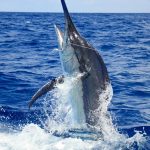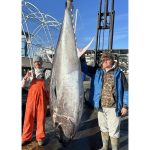Article/Letter courtesy: Ben-Yami Column | WORLD FISHING and AQUACULTURE | Originally published: Feb. 2015.
Skipper’s protest. It seems that at least every 5 years I’ve got to return to the dispute of overfishing vs. other factors responsible for depleted fish populations. I surely wrote about it on this page in 2002, 2007 and 2012. Now, with a feeling of déjà vu, I’m back at it. The main reasons were some news showing that apparently something was happening on the global fisheries management scene. The trigger was a letter sent to me by my friend Cormac Burke, in which a British fisherman, Skipper (ret.) M.W. Jackson Snr, wrote to Fishing News. Mr. Jackson was complaining of the lack of judgment with which the general press distributed misinformation “by conservationists who are self proclaimed ‘experts’. … …very good at manipulating the media who love them, and publish every dubious, or in some cases, completely false, stories given to the press”. Skipper Jackson continues: “There has always been a strong argument that vagaries of tide, wind, and frequent weather changes make stocks of fish virtually impossible to predict. Famine and feast have co-existed around the coastal fisheries of our islands since forever, often without any logical explanation. Put a ban, or huge restriction, on certain species and they will appear everywhere, and then they will have to be discarded!”
And in Israel. Recently, fishermen here came with a similar complaint, due to a press-wide campaign in which a local “nature protecting” society under a pretext of concern about marine ecosystem is attacking commercial fishermen, blaming them for overfishing, while ignoring well-proven ecological villains: the sewage and seepage that are flowing into the Eastern Mediterranean from municipal, agricultural, and industrial sources, some treated and some untreated, as the sewage from the Gaza Strip, as well as pollution from the thick shipping. Our coastal waters are additionally affected by 5 sea-water desalinization plants, which immediate saline surroundings remind that of the Dead Sea where life is hardly possible. More damage to our coastal ecosystem is due to oil and gas explorations, their drilling and associated occasional faults, and laying underwater cables and oil and gas carrier pipes. Breakwaters, marinas and other beach constructions critically modify the character of the overcrowded coastal strip, where many commercial fishes spawn and grow. On the top of all this major changes take place in the catch composition of the Near-East commercial fisheries, due to Red Sea fishes invasion.
News from science. lt’s strongly suspected in the USA and some other countries that such well-financed “green” anti-fishing campaigns are in fact designed to distract the public attention from the “contribution” of the petro-chemical and other polluting industries to the marine and fisheries ecosystems. I hope that one day also the official management will gradually swallow its pride and recognize that persecuting and harassing only small and medium-scale commercial fishermen for the depletion of fish stocks and for hurting the whole ecosystem doesn’t hold water, all the more that in recent years more and more independent and governments’ own scientists, and even judiciary have recognized the undisputable.
According to a report published in the ICES Journal of Marine Science, a combination of fishing and climate caused four fish stocks: black sea bass, scup, summer flounder, and southern winter flounder, in Northeast U.S. waters to shift significantly poleward. Increasing ocean temperatures and climate change, are forcing fish to leave their habitats for a more favorable area, or to attempt to survive under less than favourable conditions. The recent northward shift of the summer flounder stock was linked to an increase in the number of larger, older fish, formerly creamed-off the population by selective fishing gear. The study is telling workers developing management modes and rules to consider multiple factors specific to individual species; otherwise they can cause a mismatch between the distribution of fish and the catch allocations for different regions and species.
It seems that also the NMFS (the U.S. National Marine Fisheries Service) had recognized in its 2013 report the impact on marine life of maritime industry, pollution, coastal development, and catastrophic events, but this has still to be applied throughout its management system.
Pollution. Marine pollution is the result of industrial and agricultural runoff, and municipal sewage, and may contain radioactive waste. It flows into the sea from land sources mainly by gravity, carried by wind, or physically delivered and disposed by people. Excessive inputs of nutrients enriches estuarine and sea waters. Resulting algal blooms may become anoxic and cause massive fish mortalities, while carrying toxic chemicals such as pesticides and toxic metals accumulating in micro- and macroplankton. Those arrive through bio-accumulation into the organs of edible, commercial species; find their way into cattle, poultry and people’s diet, while causing harm along the whole food web. Dredging contributes millions of tonnes, making about 80% of all waste dumped into the ocean. About 10% of all dredged material is polluted with heavy carcinogenic metals such as cadmium, mercury, and chromium, and with nutrients and pesticides.
Recently, in Africa, Royal Dutch Shell has agreed to pay $84 millions to residents in the Niger Delta whose communities had been devastated by the two massive oil spills in 2008 and 2009 that affected thousands of hectares of mangrove in south Nigeria. While justice was done, it took Shell six years to recognize the true extent of the damage these spills caused to the environment and to the people’s livelihood.
Science has got still a long way to go to establish the various effects of pollution and climatic trends and events on fish populations, as compared with the impact of fishing in the ever-changing, dynamic ecosystem. But fishermen are sick of being blamed for depletion of stocks when managers close their eyes on all other factors. Wouldn’t you?
Above: While marine pollution can be obvious, it is often the pollutants that cannot be seen that cause most harm.
Above: Trash litters the waters of a fishing village on Bonny Island in the Niger Delta.
Above: Marine coastal pollution.








